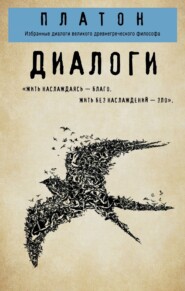По всем вопросам обращайтесь на: info@litportal.ru
(©) 2003-2024.
✖
Parmenides
Настройки чтения
Размер шрифта
Высота строк
Поля
To be sure.
And in either case, the one would be many, and not one?
True.
But, surely, it ought to be one and not many?
It ought.
Then, if the one is to remain one, it will not be a whole, and will not have parts?
No.
But if it has no parts, it will have neither beginning, middle, nor end; for these would of course be parts of it.
Right.
But then, again, a beginning and an end are the limits of everything?
Certainly.
Then the one, having neither beginning nor end, is unlimited?
Yes, unlimited.
And therefore formless; for it cannot partake either of round or straight.
But why?
Why, because the round is that of which all the extreme points are equidistant from the centre?
Yes.
And the straight is that of which the centre intercepts the view of the extremes?
True.
Then the one would have parts and would be many, if it partook either of a straight or of a circular form?
Assuredly.
But having no parts, it will be neither straight nor round?
Right.
And, being of such a nature, it cannot be in any place, for it cannot be either in another or in itself.
How so?
Because if it were in another, it would be encircled by that in which it was, and would touch it at many places and with many parts; but that which is one and indivisible, and does not partake of a circular nature, cannot be touched all round in many places.
Certainly not.
But if, on the other hand, one were in itself, it would also be contained by nothing else but itself; that is to say, if it were really in itself; for nothing can be in anything which does not contain it.
Impossible.
But then, that which contains must be other than that which is contained? for the same whole cannot do and suffer both at once; and if so, one will be no longer one, but two?
True.
Then one cannot be anywhere, either in itself or in another?
No.
Further consider, whether that which is of such a nature can have either rest or motion.
Why not?
Why, because the one, if it were moved, would be either moved in place or changed in nature; for these are the only kinds of motion.
Yes.
And the one, when it changes and ceases to be itself, cannot be any longer one.
It cannot.
It cannot therefore experience the sort of motion which is change of nature?
Clearly not.
Then can the motion of the one be in place?
Perhaps.
But if the one moved in place, must it not either move round and round in the same place, or from one place to another?
It must.
And that which moves in a circle must rest upon a centre; and that which goes round upon a centre must have parts which are different from the centre; but that which has no centre and no parts cannot possibly be carried round upon a centre?
Impossible.
But perhaps the motion of the one consists in change of place?
Perhaps so, if it moves at all.
And have we not already shown that it cannot be in anything?

















